Tax & Income Supports
Income support programs—including cash assistance and tax credits—help families meet their basic needs and promote economic mobility. We provide solutions to ensure that everyone has resources they need to take care of themselves and their loved ones.
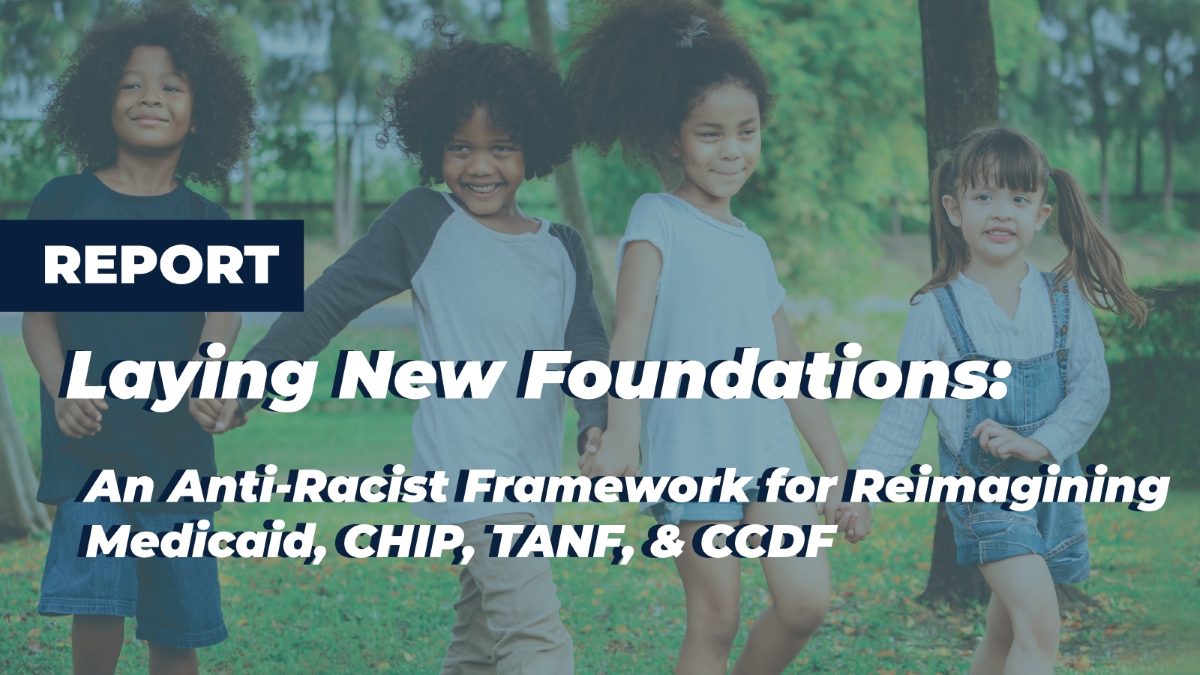
Everyone deserves the opportunity to lead a healthy, stable, and economically secure life. Many government programs aim to provide a stable foundation for all families, but fall short due to legacies of racism. This report puts forth a visionary framework with principles for anti-racist policymaking, focusing on Medicaid, the Children’s Health Insurance Program (CHIP), the Child Care and Development Fund (CCDF), and Temporary Assistance for Needy Families (TANF). It includes three spotlights from leaders in Puerto Rico, Texas, and the District of Columbia applying these principles to advance racial and economic justice in their communities.
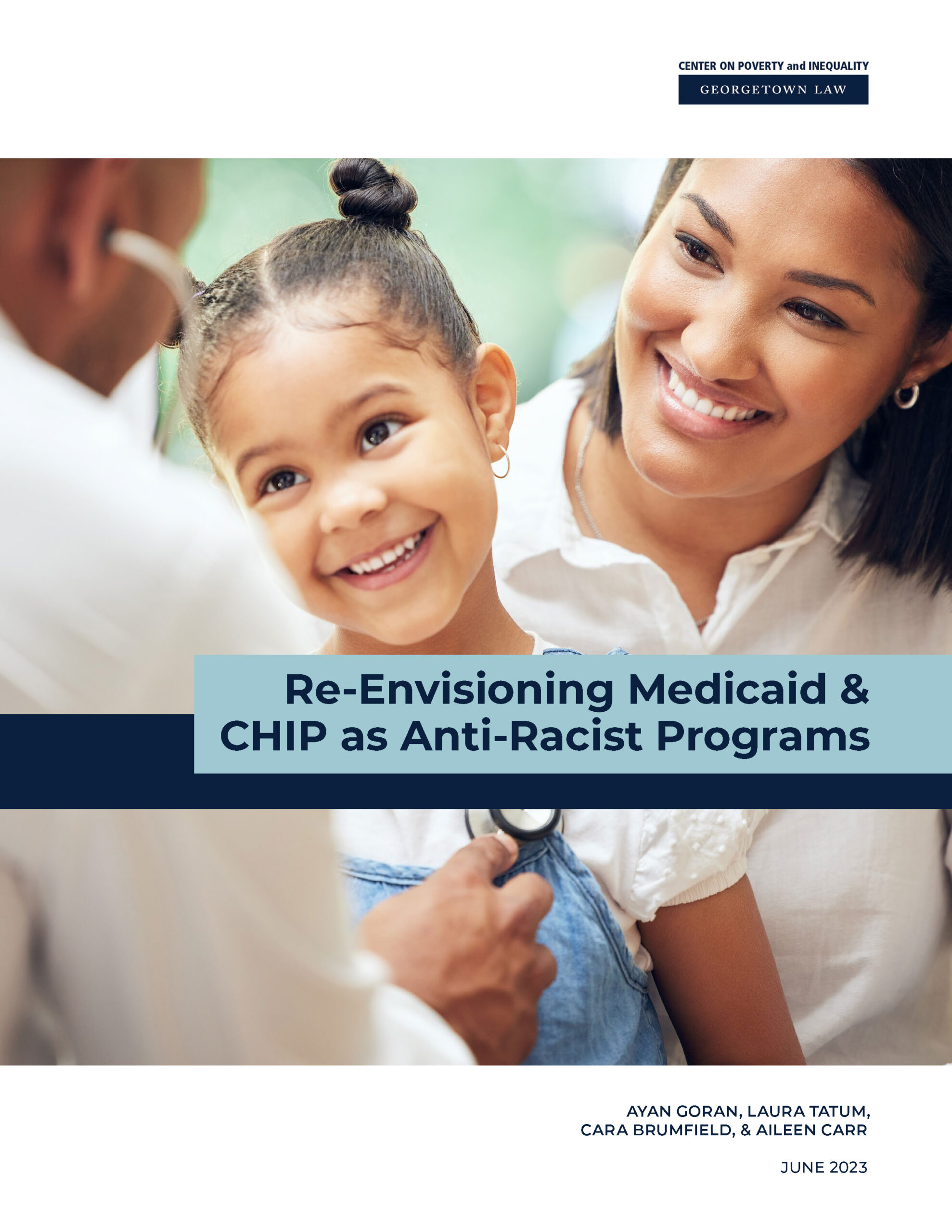
Racial and ethnic disparities in the health care system have long impeded our nation’s health and well-being. For everyone in the U.S. to achieve their full potential—and for our nation to achieve its full potential—we must ensure equitable access to high-quality health care. This report presents an anti-racist re-imagining of the Medicaid and CHIP programs that actively reckons with the racist history of health care coverage. The report offers recommendations to advance racial equity in Medicaid and CHIP. It also provides principles to guide anti-racist policy transformations that center program participants and their communities.

The latest debt ceiling agreement threatens to take away food and cash assistance from people with low incomes—especially older women—if they cannot meet harsh work reporting requirements. The latest bill would add another hurdle to accessing the Supplemental Nutrition Assistance Program (SNAP) for older Americans ages 50-54 and doubles down on existing SNAP time limits for childless adults under 50 and existing work requirements in the Temporary Assistance for Needy Families (TANF) program.

All who call the U.S. home should have the opportunity to thrive and support their families. Millions of immigrants and their families disproportionately face barriers to opportunity, and are unnecessarily excluded from public programs like CHIP, Medicaid, and the Child Tax Credit. Research shows that immigrant-inclusive public policy improves public health outcomes and reduces poverty. This blog highlights reforms needed to achieve a more equitable and prosperous society for everyone and improve the nation’s overall economic security and opportunity.

Corporate market power touches virtually every facet of American life—from health care costs and access to grocery stores to our environment and the strength of our democratic institutions. Public benefits programs, such as the Supplemental Nutrition Assistance Program (SNAP) and Medicaid, provide essential protections for workers and families from the harms of concentrated market power, including the prevalence of low-paid work. However, little attention has been paid to the complex relationships between public benefits and corporate market power. This working paper examines some of the relationships between corporate market power and public benefits and spotlights opportunities for further exploration of this emerging area of research.
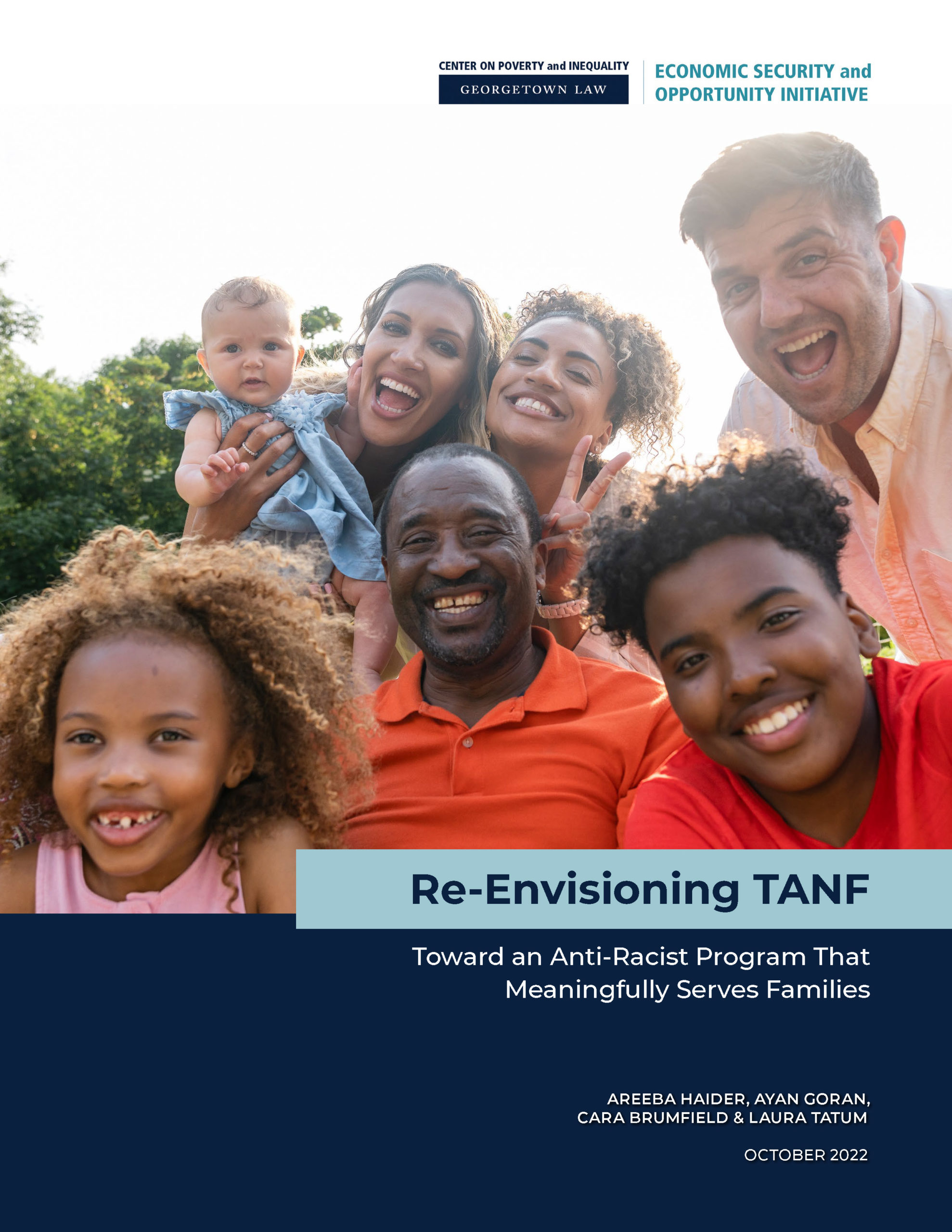
An America where no one experiences poverty is possible. Already, the U.S. has programs with the potential to make this vision a reality, including programs that provide cash assistance, like Temporary Assistance for Needy Families (TANF). The current TANF program provides very little cash assistance and is marked by stark racial disparities, but it has the potential to reduce child poverty, increase economic security, and advance racial equity. This report offers a vision for an anti-racist approach to the TANF program, with new statutory goals and policy recommendations to advance racial justice.
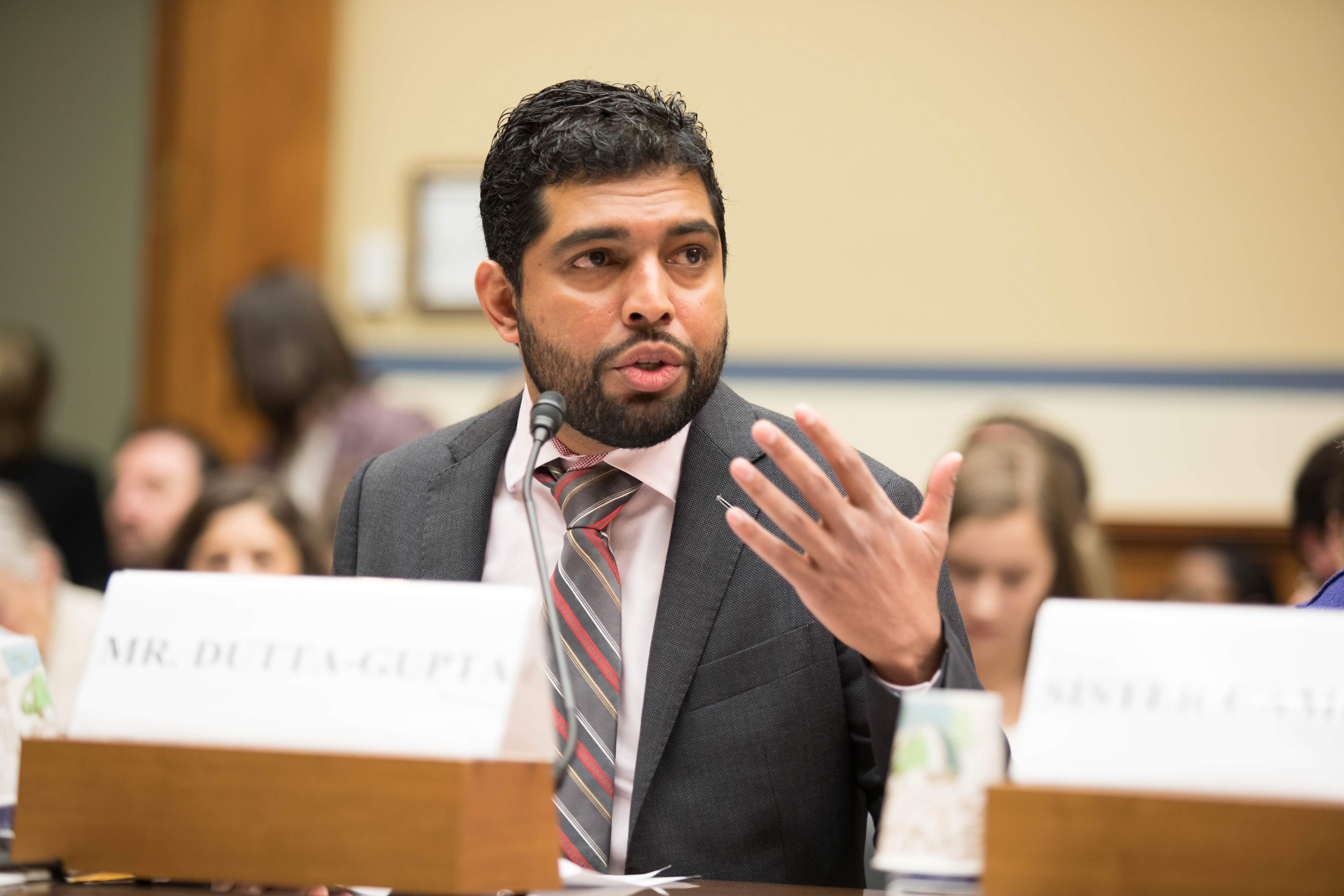
In 2020, federal policymakers took extraordinary measures to help millions of families avoid poverty and material hardship during the COVID-19 crisis. These temporary federal relief efforts—especially those boosting household incomes and ensuring people’s access to essential services—“played a central role in stabilizing our families and our nation’s economy, while pushing back on deep racial and gender inequity,” according to GCPI Co-Executive Director Indi Dutta-Gupta’s testimony before the United States House of Representatives Select Subcommittee Committee on the Coronavirus Crisis. Dutta-Gupta also argued that continuing to provide needed support to families would address pre-existing inequities and the weaknesses of social protection programs. Policies in “Build Back Better” proposals—with some crucial additions—would provide transformational investments to protect families and our economy against future threats, meet our national caregiving and job needs, and reduce poverty, hardship, and inequality for generations to come.
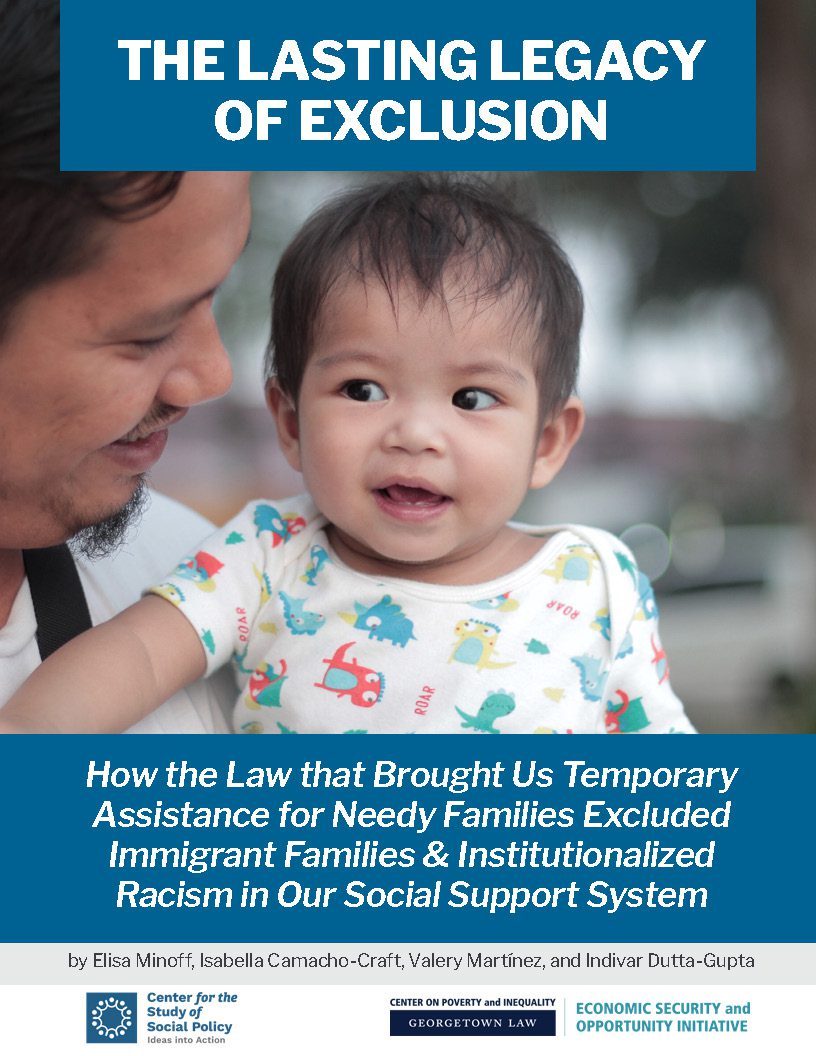
In 1996, the Personal Responsibility and Work Opportunity Act (PRWORA) radically transformed our system of social supports. In addition to decimating cash assistance for families, the law’s immigrant exclusions exacerbated economic and racial inequities and harmed children and families in the 25 years since. This report—published jointly with the Center for the Study of Social Policy—examines the racist roots of PRWORA’s anti-immigrant exclusions and highlights the law’s role in institutionalizing and legitimizing anti-immigrant exclusion in a range of public benefits and tax credits.

If you have kids, check your bank account on Thursday. There’s a pretty good chance you’ll see $250 or $300 in your account with the letters “CTC” in the line item.If you have kids, check your bank account on Thursday. There’s a pretty good chance you’ll see $250 or $300 in your account with the letters “CTC” in the line item. That’s because for the first time ever, we are recognizing raising kids as essential work with a bigger Child Tax Credit (CTC) for more families, and the option to get your tax credit as a monthly check or direct deposit.

Biden’s plan would rein in corporate power and profit and launch a new era in which the wealthy finance large-scale investment for the public good.
